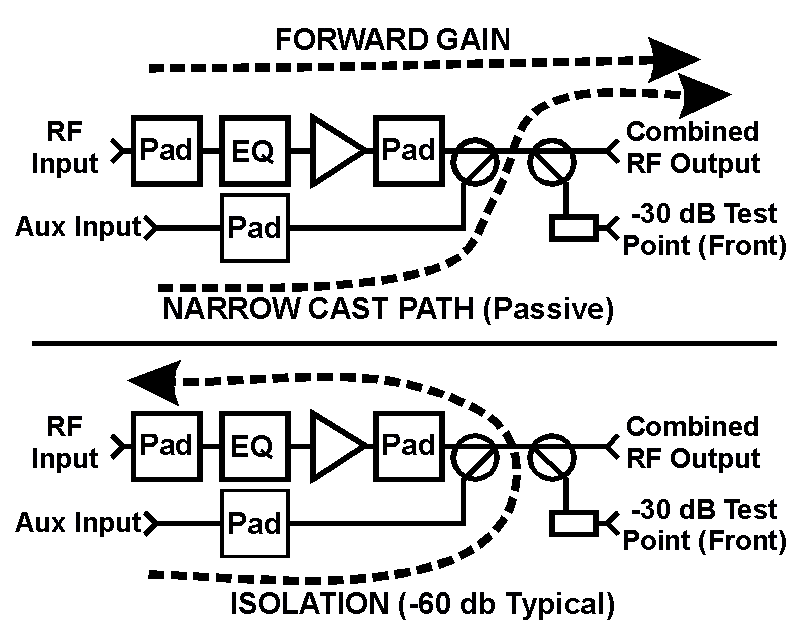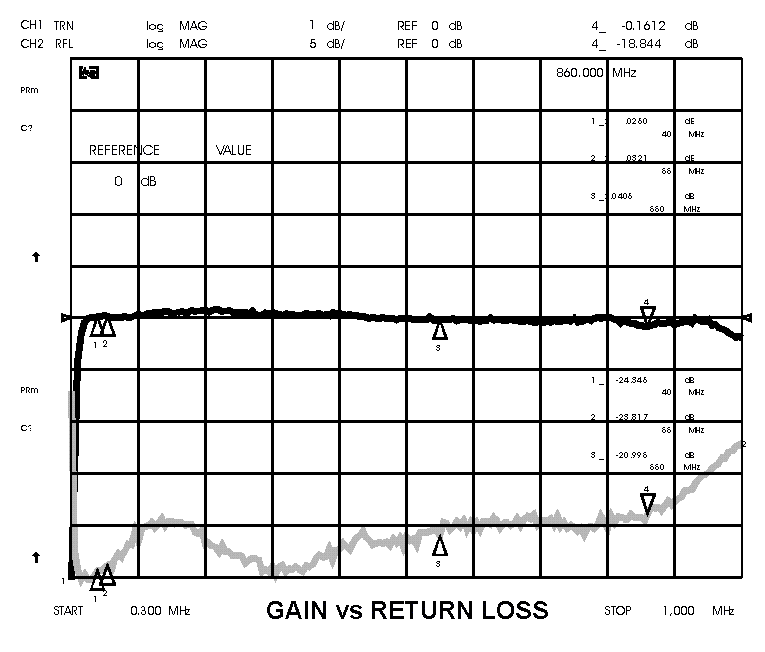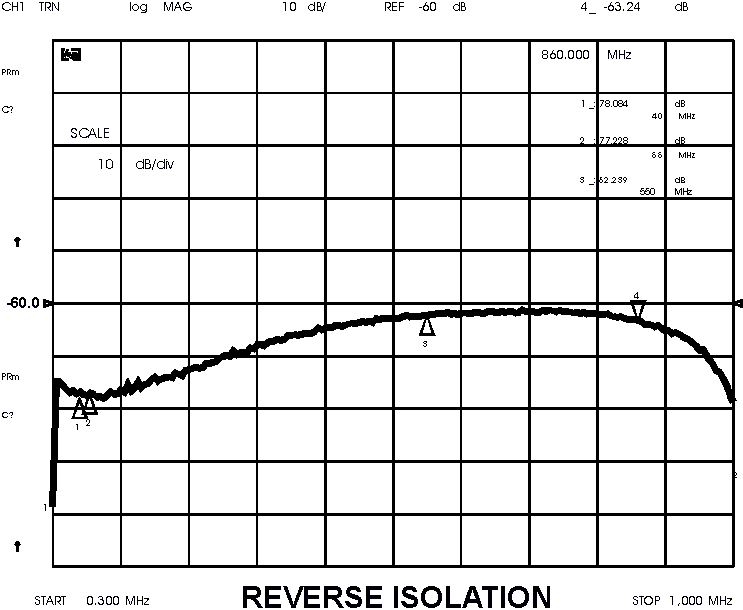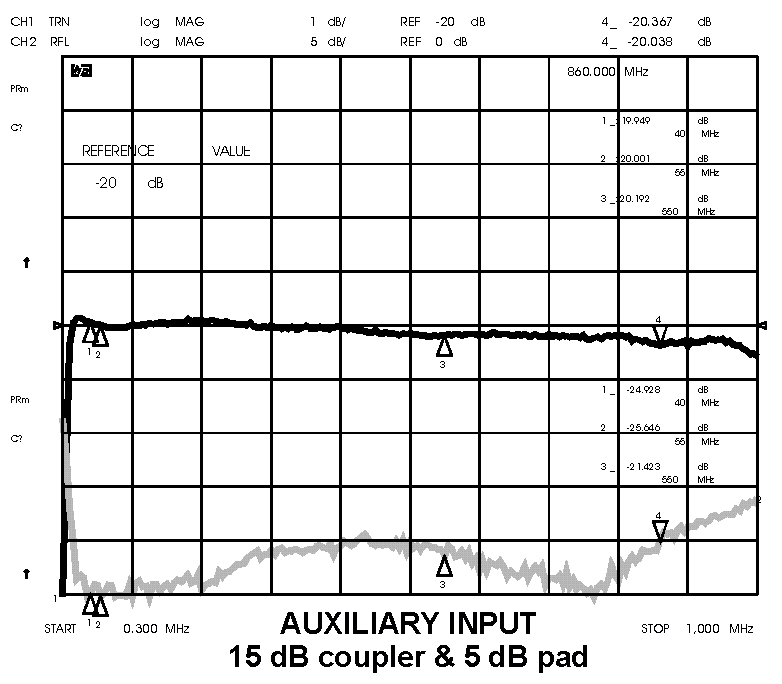| Figure 5 is the block diagram of the
QRBA isolation amplifier from QRF. The maximum forward gain of the amplifier is
typically 1 dB below the hybrid device. When an internal equalizer is required to
set all signals to a flat output, the insertion loss of 1 dB at the rated frequency of the
EQ is subtracted from the forward gain. The NARROWCAST path consists of the
auxiliary input pad and the combining directional coupler tap leg, which has a loss of 15
dB. The front facing internal test point consists of a –20 dB directional
coupler with a 10 dB pad permanently installed on the circuit board to minimize the effect
of the unterminated test point after the initial amplifier setup. |
| The ISOLATION path will include the
effects previously discussed about gain and internal passive losses of the hybrid and of
course any pads and equalizers installed to set levels or add to isolation. |
| Figure 6 is an HP network analyzer
plot showing the forward gain and input return loss of an isolation amplifier configured
for 860 MHz operation at UNITY GAIN. Gain is displayed with the thick black line at
the center of the graticule in 1 dB-per-division format. Return loss is shown by the
gray trace near the bottom of the graticule using 5 dB per division. A minimum
impedance match of 16 dB return loss is maintained beyond 900 MHz. |



